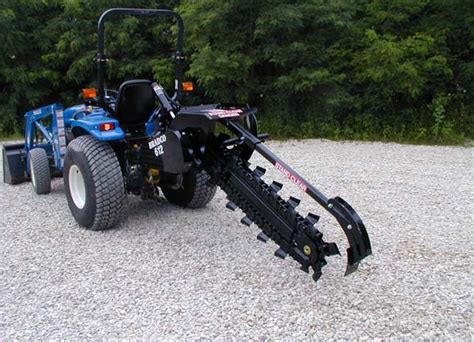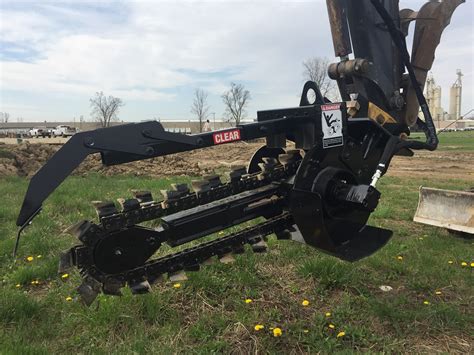mini excavator vs trencher For the most versatility, using a mini-excavator or excavator attachments is a good solution for many trenching jobs. However, a dedicated trencher is best when precision trenches are required. Trenchers also make sense for small jobs and DIY projects. For Digger Hire in Dorking, Central Plant Hire 01293 851320. Digger & other plant machinery .
0 · trencher attachment for small tractor
1 · trencher attachment for mini excavator
2 · trench attachment for mini excavator
3 · grading with a mini excavator
4 · digging trench with mini excavator
5 · digging footings with mini excavator
6 · different attachments for mini excavators
7 · aftermarket attachments for mini excavator
I am looking to replace bucket clylinder seals on my reliable but old Pel Job (not sure where to locate model No) however after seaching the web I have difficulty in finding spares or somone local to carry out repairs (based in Droitwich .
trencher attachment for small tractor
A big difference emerges when you need a trencher to go deeper. The 2.5-metric-ton excavator has no trouble digging to 8 feet or more, but a trencher that can go that deep will require an. A big difference emerges when you need a trencher to go deeper. The 2.5-metric-ton excavator has no trouble digging to 8 feet or more, but a trencher that can go that deep will require an. For the most versatility, using a mini-excavator or excavator attachments is a good solution for many trenching jobs. However, a dedicated trencher is best when precision trenches are required. Trenchers also make sense for small jobs and DIY projects. On the other hand, according to Pullen, a mini/compact excavator allows the operator to get up close to a trench as any piece of equipment. “One advantage of a compact excavator is a knuckle boom and near-zero or zero tailswing design, which allows for trenches to be dug immediately next to structures,” she says.
Should you rent a trencher or excavator? Explore the different uses, applications and benefits of both machines in this guide by The Cat Rental Store. A trencher digs only the necessary amount of material, whereas an excavator creates the need for more backfilling. A trencher also makes it easier to backfill once a line is laid. It produces well graded spoil, which you can push in with a dozer.
value john deere ct 332 skid steer 2006
Both an excavator and a trencher look rather similar and they can do the same job – well kind of. The thing is, there’s a clear distinction between them both. Read our little showdown between the trencher and excavator and which one is a better fit for your job. Larger walk-behind models can excavate trenches to depths of approximately 4 feet and up to 6 inches wide. Small ride-on models (in the 40- to 60-gross-horsepower range) can excavate trenches to.Choosing between a trencher and an excavator depends on the specific needs of your project. Trenchers are unmatched when it comes to specialised trenching tasks, offering speed and precision. On the other hand, excavators provide versatility and power, making them suitable for a broader range of applications.You may consider buying a mini excavator or trencher. But which one is the better choice for your needs? This article will compare the two and provide a detailed analysis of their features and advantages. We’ll also offer tips on choosing the right machine for your specific needs.

Here's a simple example of how your trench will look if you use a trencher vs using a mini excavator to dig the trench. A big difference emerges when you need a trencher to go deeper. The 2.5-metric-ton excavator has no trouble digging to 8 feet or more, but a trencher that can go that deep will require an.
For the most versatility, using a mini-excavator or excavator attachments is a good solution for many trenching jobs. However, a dedicated trencher is best when precision trenches are required. Trenchers also make sense for small jobs and DIY projects. On the other hand, according to Pullen, a mini/compact excavator allows the operator to get up close to a trench as any piece of equipment. “One advantage of a compact excavator is a knuckle boom and near-zero or zero tailswing design, which allows for trenches to be dug immediately next to structures,” she says.Should you rent a trencher or excavator? Explore the different uses, applications and benefits of both machines in this guide by The Cat Rental Store. A trencher digs only the necessary amount of material, whereas an excavator creates the need for more backfilling. A trencher also makes it easier to backfill once a line is laid. It produces well graded spoil, which you can push in with a dozer.
Both an excavator and a trencher look rather similar and they can do the same job – well kind of. The thing is, there’s a clear distinction between them both. Read our little showdown between the trencher and excavator and which one is a better fit for your job.
Larger walk-behind models can excavate trenches to depths of approximately 4 feet and up to 6 inches wide. Small ride-on models (in the 40- to 60-gross-horsepower range) can excavate trenches to.
Choosing between a trencher and an excavator depends on the specific needs of your project. Trenchers are unmatched when it comes to specialised trenching tasks, offering speed and precision. On the other hand, excavators provide versatility and power, making them suitable for a broader range of applications.You may consider buying a mini excavator or trencher. But which one is the better choice for your needs? This article will compare the two and provide a detailed analysis of their features and advantages. We’ll also offer tips on choosing the right machine for your specific needs.
trencher attachment for mini excavator
trench attachment for mini excavator
grading with a mini excavator

MINI DIGGER 3 TON. Our 3.0 ton Digger hires mean that you will be hiring the Kubota’s U27-4 compact excavator, which is compact and tough enough to tackle the most demanding tasks .
mini excavator vs trencher|aftermarket attachments for mini excavator